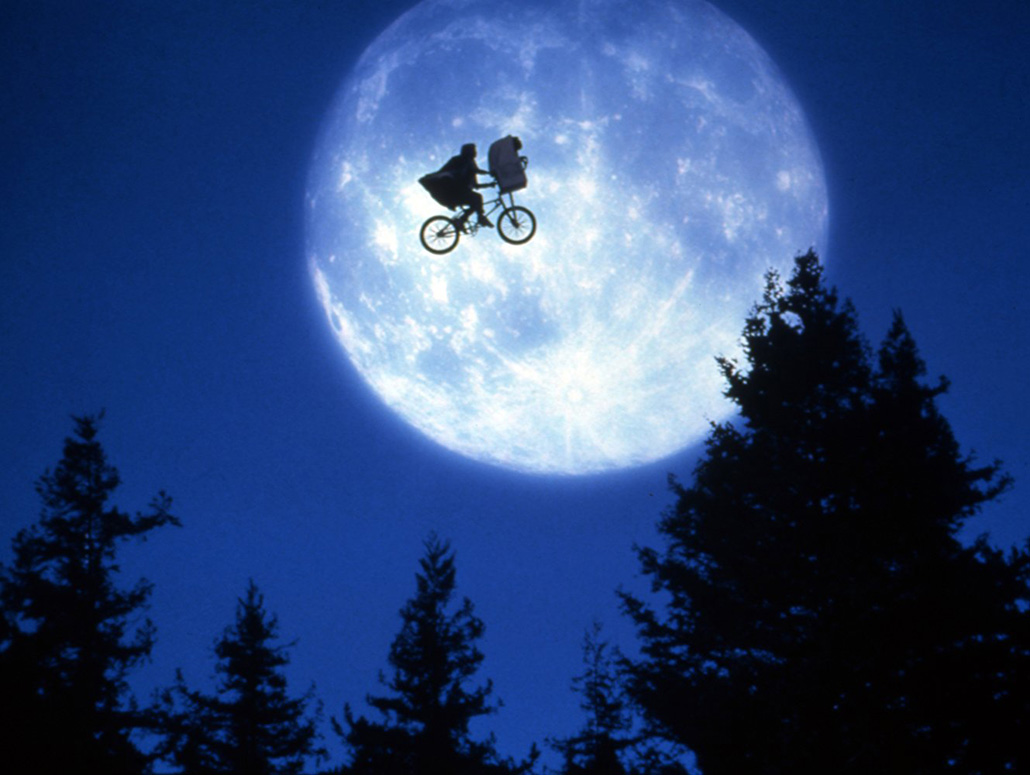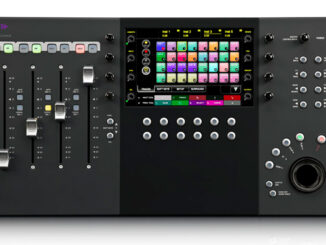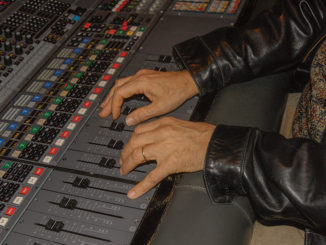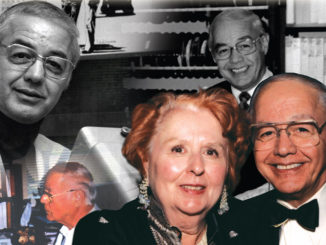
By Leslie Shatz
Go to part 1.
Robert “Buzz” Knudson’s career as a mixer has spanned 25 years and includes such films as, Who Framed Roger Rabbit, The Color Purple, Witness, Close Encounters of the Third Kind and A Star is Born. He has been nominated for 9 Academy Awards and has won three times, for Cabaret, The Exorcist, and E.T. This year he received a lifetime achievement award from the Cinema Audio Society. He is currently Vice Chairman of the Board and Consultant to the Studio at Todd-AO.
Leslie Shatz is a freelance sound designer and re-recording mixer, often wearing both hats on the same film. His credits include Timecode, Good Will Hunting, Alien: Resurrection, Bram Stoker’s Dracula, and Ghost. This year he was nominated for an Academy Award for The Mummy.
In this continuation of last month’s conversation with Leslie Shatz, Buzz talks about schedules, ‘eye-ear coordination’ and drugs and alcohol in the ’60s.
Leslie Shatz: I think that it’s safe to say now that the mixing schedules have gotten more intense and more brutal.
Robert Knudson: Yeah. When you figure we took 15 weeks on Exorcist and A Star is Born and all those pictures. Steven’s pictures go quicker [Steven Spielberg]. He’d take about six or seven weeks and they’re done. That includes pre-dubbing, and they’re pretty involved pre-dubbs. But he approached the film differently than Friedkin. He sees exactly what he wants in his mind and he doesn’t belabor one thing in a busy scene. If it all works, it’s out the door, you know. Billy [Friedkin] likes to say, “Every effect has to stand on its own.”
“You could be the technocrat of the world or Brainiac or whatever you want to call it but if you don’t have the ability to sit there and take the heat and the good times and know what has to be done, it isn’t going to work.” – Robert Knudson
LS: I remember you saying he [Friedkin] would go stand right up next to the speaker and if he heard any hiss…
RK: Yeah he didn’t do that on this new version because they fill everything now, you hear outside sounds when you’re inside.
LS: Do you think that the mystery is lost, in a way, because everything that moves has a sound attached to it?
RK: Oh I hate it. They over-build so much now. Call it whatever you want, but it’s covering yourself. They want to make sure they’ve got the right thing and the right combinations so that once you put them together everybody approves them. Did you ever watch an old movie?
LS: Sure.
RK: There’s nothing in them. And they’re great. If the guy is walking, if you hear it in the production track you hear it. They didn’t have foley in those days. Those pictures were terrific. They’re classics today.
LS: But if you come to the mixing stage today, like that…
RK: You can’t do that.
LS: The director and the producer will throw you out.
RK: Throw you out. I’m not criticizing, I’m really saying there’s a difference in the way they approach a movie today. And I think it’s just been evolving inch by inch to where we are today.
“There’s a difference between knowing what you put in the tracks and the pressure of having somebody looking over your shoulder telling you how loud to make them.” – Robert Knudson
LS: I remember when the Rolling Stones did a movie, they came to mix it with you.
RK: Hal Ashby.
LS: And they said, “We want to mix with Buzz because he’ll give us the loudest mix of anybody.”
RK: I don’t know where they got that, because boy, I’m so anti-loud, but that’s the way they mix now.
LS: In those days there was the Dolby A analog optical track which had severe limits as to how loud you could get.
RK: I think that is the biggest change we’ve ever had, going from an optical track with no head room at all, to a disc. Now you have all the headroom you want.
LS: Getting back to these brutal schedules, I remember back then you didn’t like working on Saturday because it got in the way of your golf game.
RK: I still play a lot of golf.
LS: Do you feel that working in the film industry was a bad trade-off in terms of the lack of leisure time or –
RK: Well, I don’t think so. I think that if you have a good wife, your family and everything works out fine, but if she’s not an understanding person it could be nasty. This is my 50th year of marriage. So I think I had a good one.
“There’s a certain thing in mixing I call eye-ear coordination. When you have an effect or something, as a mixer, you instantly know – your brain works so fast that you know what level to make it.” – Robert Knudson
LS: Congratulations.
RK: And I’ve got a good family, so I think in some cases it might affect the way your family or your life goes. I’ve never thought that it affected me personally because I couldn’t play golf one weekend or whatever. I think the worst thing about schedules and the long schedules in terms of weekends and so forth are that you make plans and have to cancel them. And we all do it. I’m not complaining. That’s just the way this world is.
LS: But in the end you feel the trade-off was worthwhile.
RK: Oh yeah, sure. I’m very comfortable and so you know, I personally can’t knock it.
LS: Once the union made Saturday a time and a half day, it gave producers a lot more incentive to work the crews on Saturdays.
RK: Oh yeah, they used to have to think twice. They had to really want to work it.
LS: Right.
RK: I remember we used to have to work a half a day on Saturday.
LS: Oh really?
RK: That was part of the week, years ago. We’d get off around noon. That was back in probably ’53. I think mostly it was a six day week, but if there was no work we’d get out of there about 12 or 1 o’clock. That was part of the contract.
“People used to drink for a reason in those days. They’d go after work and sit down and drink until 8 o’clock. I didn’t do that. I couldn’t wait to get home and get my shoes off and have dinner. To see my kids, you know. These guys maybe didn’t have that kind of something to go to.” – Robert Knudson
LS: When I started out, the mixer was king. As a sound editor, if the mixer wanted to make your life hell, he could do it. You’d be thrown off the job, he could bounce your reel off the stage.
RK: I know the major studios were like that when I first started. Today as you know, that doesn’t work. And I think that changed right around the time when I came into the business. We’re starting to get away from that and directors seem to be a little more knowledgeable or they care a little more. Some of the directors early on, they didn’t know the difference and really didn’t care. They knew it was going to get into the theaters so they let somebody else worry about the sound. But today directors want to take it all the way from first day of shooting until it goes in the lab.
LS: I remember one time when Jimmy Stewart at Glen-Glenn threw me off the stage and threw my tracks off the stage and they were perfectly fine. I thought I can’t – I won’t survive if I’m subject to that. And so I decided I was going to learn how to mix and have more control over my work.
RK: Well, he was from the old school, obviously. I worked with him once. He was very pleasant, but he would be capable of doing what you’re saying.
LS: That’s why there’s this trend of sound editors getting on the console, mixing their own stuff. I’m much more familiar with my own material and how I cut it than with somebody, like you said, who just sees a set of cue sheets that runs the length of the console.
RK: I think that’s okay except that there’s a little difference between knowing what you put in the tracks and the pressure of having somebody looking over your shoulder telling you how loud to make them.
LS: That’s true.
RK: It’s a little different than just, “I know what this is because I cut it.” There’s a certain thing in mixing I call eye-ear coordination. When you have an effect or something, as a mixer, you instantly know – your brain works so fast that you know what level to make it. If it’s a car-by or horn, you’ve seen it a million times in real life so you instantly know how to make it that level. And if you don’t have that faculty I don’t think you could ever be a good mixer.
LS: Well I’ve often compared mixing to being a professional athlete, which is why I think it’s interesting that you played baseball. Mixers are called upon to have physical reactions, very precise reactions.
RK: I think that helps. I think that’s why I used to be a pretty good golfer until I got old.
“I always said that I got lazy when the “back-up” system came in. That was the beginning of where it got a little easier, but mixing lost something.” – Robert Knudson
LS: I remember going to lunch with the crew from Glen Glenn. We went to lunch at Oblath’s [a restaurant, bar and liquor store that was once next to Paramount Studios in Hollywood], sat down and boom, drinks on the table without anyone even ordering them. This is lunchtime, remember, and these were doubles. And the waitress just came back with another round, and I said, “Are you guys going to order food?” and they said…
RK: “…Maybe.”
LS: Yeah! And now I’m older. I think I’m about the same age as they were then. I couldn’t drink one drink at lunch let alone…
RK: And have any faculties later in the afternoon.
LS: Exactly. And so what happened? It seems like alcohol was a big problem with mixers.
RK: Some of those guys had their own seats at Oblath’s. One of those guys came over and worked with me. He was a good music mixer, really good. And a nice, really a neat guy. We had a lot of laughs together. But I think he liked to hit it a little bit. We’d pre-dubb in the morning and in the afternoon, we’d give him his pre-dubbs from the morning and it was like he hadn’t even been there.
LS: You never had this encounter with alcohol in that way?
RK: No, I don’t drink to this day. I never smoke or drink.
“I think that if you have a good wife, your family and everything works out fine. This is my 50th year of marriage. So I think I had a good one.” – Robert Knudson
LS: I’m wondering why it doesn’t seem to be a problem now.
RK: I think it’s just a trend that people take care of themselves better than they used to. I think people used to drink for a reason in those days. They’d go after work and sit down and drink until 8 o’clock. I didn’t do that. I couldn’t wait to get home and get my shoes off and have dinner. To see my kids, you know. These guys maybe didn’t have that kind of something to go to. I agree with you, the drinking was a big problem in those days. I don’t think it had a dime to do with the mixing part of it. I think it was just a part of their personal relationship with their family and for whatever reason they just thought that was the way to go.
LS: I wonder whether mixing was more demanding in terms of physical reaction time in those days, and whether that really caused a lot of stress. Now with automation, if you don’t get it right the first time you go back.
RK: I always said that I got lazy when the “back-up” system came in. [The ability to go back and punch in within a reel, rather than recording it in one continuous 10 minute take.]
I used to make great notes on the cue sheet and I’d make word cues for the dialogue where I’d write down a plus or minus so I’d know to make the next word higher or lower. But with the back-up system, after a while I finally said, “Why am I doing this when I can just run back and fix it.” And I really got lazy. That was the beginning of where it got a little easier, but mixing lost something. Usually when I’d finish, if I had done a reel of dialogue and it went through well, I felt like I had done something good. I never had that feeling after that. Sure, it got finished fine, but it didn’t have the same kind of glory to it in my own mind that, “Gee, I had made good notes and I caught them all going forward and it was great.”
LS: In the era of the 60’s and 70’s there was a lot of drug use. How did you deal with it when people would come onto your stage and use drugs?
RK: I worked once with a rock and roll guy, I don’t remember his name. Anyhow, we did his show in Studio B behind our main theater and they were so drugged out. They were all off the stage and we were wondering, ‘where did they go?’ They were all laying out in the alley looking at the stars. They were whacked out. And then there was Hal Ashby and Mick Jagger on the Rolling Stone movie. They would come in so fresh in the morning and by 11 or 12 o’clock they’d go out a couple of times together and come back, and after that they were just…rocking and rolling! They were great guys, though. They were really nice. Hal was one of my favorite people, as a matter of fact.

LS: But you didn’t see it on the stage. You didn’t ever have to tell somebody, “If you’re going to do that kind of stuff…”
RK: No. I wouldn’t know marijuana if it was smoking on the stage today. I wouldn’t know what it smelled like.
LS: The way you had your stage set up with Bob Glass handling the technical part, and you as the man in charge who knows how to deal with the clients, that way is still around today.
RK: Maybe that can still happen.
LS: Also I think this idea of the eye-ear coordination is always going to be required.
RK: Oh yeah, I think the guys will fall out that can’t do it. You could be the technocrat of the world or Brainiac or whatever you want to call it but if you don’t have the ability to sit there and take the heat and the good times and know what has to be done, it isn’t going to work. There might still be the ‘glue’, the one guy that can do that and he’ll carry the rest of them along with him. The one guy that knows right from wrong and lets the technical people do all the work. When he opens the pots up and puts them on 20, if the show has been cut right the tracks will all fit, maybe. In television, if our editors don’t prepare their show really well and use their eye-ear coordination in cutting it, when that show comes to the stage they can’t mix it in two days. And there’s no reason why they can’t do features the same way up to a point. I think you can get the general stuff to fall right in and you may have to manipulate some of the car-bys, crosses and stuff, but I think that that could be another part of our industry, where it’s changing.
LS: You think the TV people are going to be teaching the feature people how to do it?
RK: You know I’ll tell you, the TV editors are on the right track. I’m looking forward to this thing with Liberty buying us because I think that they have a big plan, long-term, that’s going to make this place just hum. I think they have a game plan technologically-wise and work-wise to where this place is going to be really a fine-tuned unit come a year or two from now. I have high hopes for it.
LS: All right. Did I leave anything out?
RK: No, I think you did everything.
LS: Thanks, Buzz.





